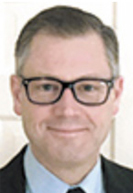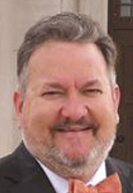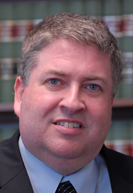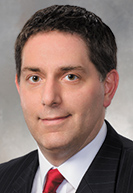Subscriber Benefit
As a subscriber you can listen to articles at work, in the car, or while you work out. Subscribe NowAmong the hundreds of neatly assorted treasures arranged throughout Justice Steven David’s spacious office, located directly next to the Indiana Supreme Court courtroom in the Statehouse, are two large portraits above his desk.
The men in the photos share the same name, Shirley David, but one is Steven’s father and the other his grandfather, taken during their time in the military more than 70 years ago.
David, 64, credits his lifelong dedication to public service to his upbringing, a career that led him all the way to the state’s highest court in 2010.
While David plans to continue working for the public until he no longer can, his time as an Indiana justice now has an expiration date.
On Nov. 3, the 106th justice of the Indiana Supreme Court announced his plans to retire in the fall of 2022.
During an interview with Indiana Lawyer on Nov. 4, David explained he felt he needed to step down after his wife, Catheryne Pully, an attorney and a commander in the U.S. Navy Reserves, was called to active duty.
David said everything started coming together for his wife over the past six weeks, and Pully is already working in Norfolk, Virginia.
“I just need a little bit more flexibility,” he said of his decision to step down. “I can’t be the justice I want to be and be focused on trying to do what I need to do and support her and her very challenging assignment as essentially the general counsel for the two-star admiral who commands all of the U.S. Navy Reserve forces. Nor do I believe I can phone-it-in or anything like that.
“… I don’t think I could continue to do this job as I think I need to do this job, and the citizens of Indiana deserve more than I might be able to give in another year or two.”
Dedicated to service
David’s legal career in civilian and military life — sometimes at the same time — is extensive.
The 1975 Columbus North alum attended Murray State University for undergrad, where he graduated cum laude as a distinguished military graduate on an ROTC scholarship.
After graduating from Indiana University Robert H. McKinney School of Law in Indianapolis in 1982, David served in the U.S. Army Judge Advocate General’s Corps on active duty until 1986, then on reserve duty until 2010.
David was mobilized post-9/11 to Iraq and Guantanamo Bay, serving as trial counsel, defense counsel, military judge, training officer, staff judge advocate and commander. In 2007, he was selected by then-Secretary of Defense Robert Gates to serve as chief defense counsel for the Office of Military Commission.
David said his time in the military “had a huge, profound impact” on shaping him.
“Duty, selfless service, teamwork, dedication, integrity, loyalty, honesty, hard work — all of those characteristics, attributes, are what I hope everyone believes is important,” David said. “… Those are very valuable lessons and life-shaping experiences. I hope it has made me a better person and consequentially a better judge and justice.”
In civilian life, David’s law career started in Columbus, where he practiced personal injury law, family law and civil litigation, before he moved to Boone County to serve as in-house counsel for Mayflower Transit Inc.
David was elected to the Boone Circuit Court in 1994, presiding over civil, criminal, family and juvenile matters until his appointment to the Supreme Court by then-Gov. Mitch Daniels in 2010, succeeding former Justice Theodore Boehm.

Boone Superior Judge Matthew Kincaid was elected to his seat in 2003, when David was judge in the circuit court. He said David has a “generous spirit” and has always been helpful to other judges and lawyers.
“(David) always had time for me when I was a brand new judge,” Kincaid said. “I visited with him a lot and he never lost patience with me or seemed like he didn’t have time to talk to me. He gives himself fully over. I don’t know anybody else who gives their cellphone number out like he does.”
David is famous for giving away his cellphone number during large meetings, including during last month’s Indiana State Bar Association Annual Summit. He said the purpose of that is so lawyers and trial judges can give feedback and ask questions.
“I think we’re a very approachable Supreme Court. I think we’re a very approachable judiciary,” David said. “We want to know. We just created the Commission on Equity and Access. We will have work groups and populate those work groups, basically asking men and women in Indiana to give us their perspective — their audit — of our court system and operations in this state. ‘Here’s what we’re doing and what we’ve done, tell us if we’re on the right track and what we’re missing.’ … You might say that’s bold, but we say that’s the only way to do it. It’s just a culture and mindset.”
Kincaid said he sees David as an “even-keeled” jurist who has made a profound impact on the state in multiple areas, including in advocating for advances in court technology. David has been a major advocate for e-filing, which is now accessible in all 92 counties, as well as the Odyssey case management system.

“As I think about how the courts operated over the last year and a half during the pandemic, what an important thing it was to have that technology in place when we did,” Kincaid said. “Without e-filing we wouldn’t have functioned at nearly the capacity we did. He did a great service for the state.”
ISBA President Clayton Miller said David has worked tirelessly with the bar over the years.
“In general, I think of Justice David as a reliable and accessible friend to the state bar association and its members. … I think we’re fortunate in Indiana that there is a close, working relationship between the bench and the organized bar,” Miller said. “It’s something we don’t take for granted. … David has been an integral part of that relationship, serving as a key point of connection between bar leaders and the court.”

Kent Eastwood, Boone County prosecutor and past president of the local bar association, recalled how even as a justice, David would come to local CLE events — including one a couple of weeks ago — before he recently moved from the county to be closer to where he grew up.
Eastwood recalled a story where once, after hearing a juvenile case, David bought the child Christmas presents because he knew they weren’t going to have any.
“He cared about every single case that was in front of him,” Eastwood said. “It didn’t matter if it was a murder case or a traffic ticket-type case. Every case was important, and he treated everyone that was in front of him like it was important to him. Secondly, he always listened to every single litigant in front of him and let them make their point and argument. You could tell he listened and considered it.”
David currently holds 25 state leadership positions as well as five national leadership positions, including chair of the Appellate Judges Education Institute. Also, he has worked as an adjunct professor at the University of Indianapolis, Notre Dame Law School and IU McKinney.
Upon retirement, David said he intends to serve as a senior judge and will continue to chair the Commission on Equity and Access and the Indiana Conference for Legal Education Opportunity. Additionally, he said there are “several” other initiatives his colleagues have asked him to stay involved in.
Outside of public service, David said he plans on continuing to do triathlons in retirement. He’s also planning on climbing Mount Kilimanjaro with his wife in January 2023.
Filling the vacancy
The Indiana Judicial Nominating Commission will begin its search for the next justice and give a list of three finalists for Gov. Eric Holcomb to choose from in the coming months. David’s retirement means Justice Mark Massa will hold the title of longest-serving justice, followed closely by Chief Justice Loretta Rush.

Joel Schumm, a clinical professor at IU McKinney, said institutional knowledge is lost when there’s a transition, but there’s also opportunity.
“We lose a lot of experience, but you gain new perspectives and there’s an opportunity for diversity on the court — a court that hasn’t had much diversity historically,” Schumm said. “We’ll be at about five years with the same justices, which is kind of a long time compared to when (David) was appointed in 2010, where we had a period when it seemed like new justices were coming in every couple years before having stability.”
Ultimately, whether a person of color and/or woman is selected to join the bench will come down to the candidates, Schumm said.
Rush and former Justice Myra Selby are the only women to ever have been selected to the high court, and Selby and former Justice Robert Rucker are the only two Black justices in Indiana Supreme Court history.
Schumm said he feels the court is “pretty well balanced” as far as experience and expertise goes. He added that he expects a slew of trial court judges to apply for the position — particularly those between the ages of 45 and 55.
While politics aren’t supposed to play a role in selecting a justice, the results often reflect the party of the governor, Schumm said.
“In the last several years, the judicial nominating commission has put on women, women of color, for the Court of Appeals that the governor has not chosen, and those people happen to be Democrats,” he said. “That, I think, is a wrinkle in this: What will the application pool look like? Will people who aren’t Republicans apply, and should they even bother applying if there’s no chance or virtually no chance the governor will appoint them?
“There is a lot of diversity outside the Republican party,” he continued. “If the pool is limited to Republican lawyers and judges, it’s going to be a much smaller, less diverse pool than if it’s independents and Democrats — people of all political stripes.”
Miller echoed that diversity should be a factor when looking at qualified candidates for the job.
“Having a court that reflects the diversity of our state is an important value,” he said. “I would hope that would be a consideration to the extent the governor has multiple qualified candidates. The diversity a particular qualified candidate would bring is relevant to that choice, from the bar’s perspective.”•
Please enable JavaScript to view this content.

